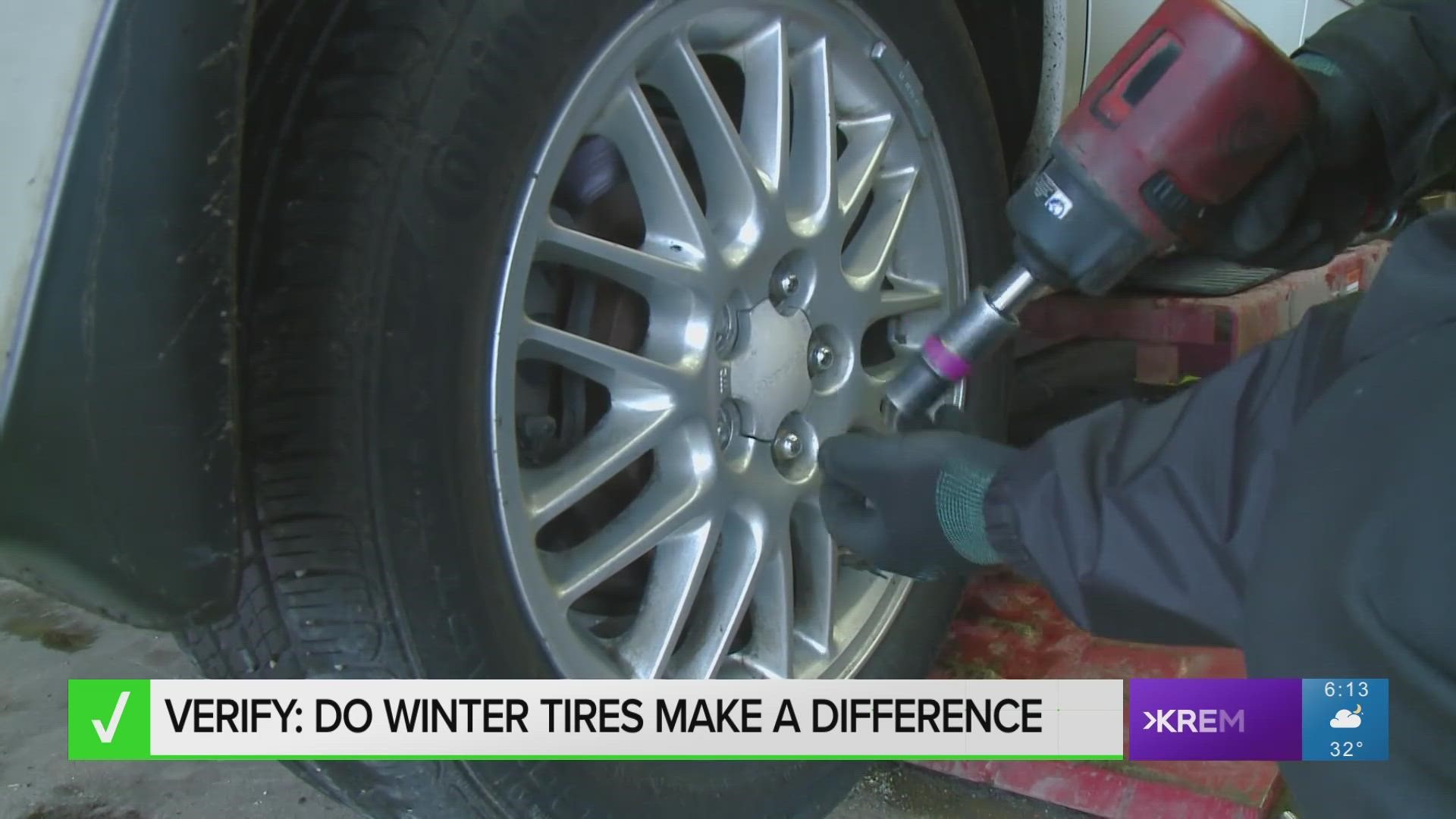SPOKANE, Wash — It’s a question you’ve likely asked yourself if you’ve lived in the Inland Northwest for a while: Do winter tires really make a difference or are my all-season tires just fine?
Our Verify team went to the experts to find out if there’s more to this debate than just the marketing.
THE QUESTION
Please Verify that winter tires make a difference over other tire types in the winter?
THE SOURCES
THE ANSWER
Yes, winter tires give you more traction in snow and ice versus all-season or all-terrain tires. A Consumer Reports comparison found that winter tires stopped the same car roughly 20% faster than all-season tires.
“A common misconception for tires is that you can get an all-terrain or all-weather that is traction rated that’s going to deliver the same traction as a winter-based tire, Darrick Umhauer, manager at Discount Tire on North Division in Spokane explained.
“What winter tires do very well is that when it gets below 45 degrees they remain flexible, where a lot of these all-weather, all-terrains don’t. So, you lose that flexibility. Takes away from your traction.”
WHAT WE FOUND
When it comes to the benefits of winter tires, the National Highway Traffic Safety Administration puts its simply: “Winter tires are more effective than all-season tires in deep snow.”
A Consumer Reports comparison found that winter tires stopped the same car roughly 20% faster than all-season tires. And, that when accelerating from 5 to 20 miles per hour on moderately packed snow, the winter tires outperformed the all-season by nearly 30%.
In a lengthy study by the Washington State Department of Transportation and the State Transportation Center, studded snow tires and studless snow tires outperformed all-season tires in nearly every comparison. One set of tests in Alaska, found, “studless Blizzak tires offered the best traction performance, especially for braking on both packed snow and ice, in comparison to studded tires (which were second) and all-season tires (which were last).”
“A common misconception for tires is that you can get an all-terrain or all-weather that is traction rated that’s going to deliver the same traction as a winter-based tire, Darrick Umhauer, manager at Discount Tire on North Division in Spokane explained. “What winter tires do very well is that when it gets below 45 degrees they remain flexible, where a lot of these all-weather, all-terrains don’t. So, you lose that flexibility. Takes away from your traction.”
Aside from staying pliable in cold temperatures, Umhauer said winter tires also have deeper tread and siping, essentially little slits across the tread, that give you even more traction in snow and ice.
So, we can verify that winter tires give you more traction in snow and ice versus all-season or all-terrain tires.
If you have something you’d like KREM 2 News to verify, send an email to: verify@krem.com

